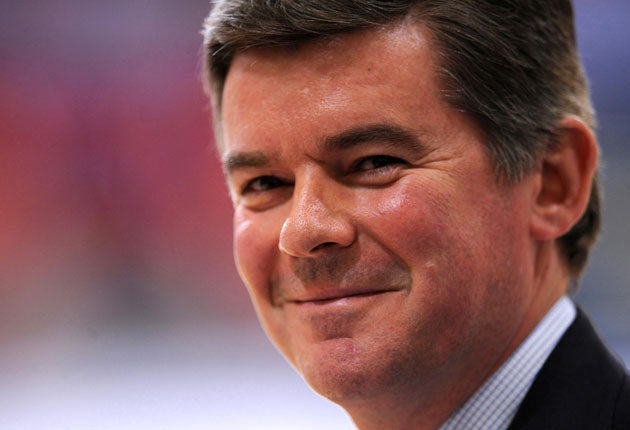Games minister fears London transport is not up to speed

With one year to go until the opening of the London 2012 Olympic Games, the Minister for Sport and the Olympics has admitted that he is worried that the capital city's transport network will not be able to cope with the number of visitors and athletes.
"We've got a lot of challenges in front of us," said Hugh Robertson, in an interview with The Independent. "It is a worry. London is a big and very busy city. Moving large numbers of people around very quickly is always going to be a challenge.
"The system here runs at, or near, capacity on a regular basis. If something were to go wrong with the Javelin Train and the Jubilee line then we are going to be stretched."
Mr Robertson added: "There's a document that comes every week called the 2012 Risk register and it's the sort of thing that can give you a serious loss of sleep if you're not careful about it."
London will enter its final year of preparation for the 2012 Olympics on Wednesday in better shape than any recent host city, but while the Mayor of London, Boris Johnson, has declared somewhat optimistically that "we are ready," Mr Robertson is more cautious, albeit optimistic.
The Sports minister admits that motorists will be angered when they are punished for crossing unwittingly into the Olympics traffic lanes in London – they are "going to get upset when they stray into it and get fined," and that increasing mass participation in sport – one of the declared aims of the London Games and a key part of the city's winning bid – "is like trying to turn round a supertanker... no previous Games has done this". He adds, ominously: "We're only just beginning to understand for the first time how you do this."
On security, Mr Robertson is reassuring. Security will be the constant, and potentially defining, challenge. The resignations of Sir Paul Stephenson and John Yates from the upper echelons of the Metropolitan Police last week have raised concerns about the impact on the Games security plan. Sir Paul was known to be having sleepless nights about the challenge of keeping visitors safe, even with 12,000 officers and sections of the Army deployed to the Games each day.
"I understand why he says that," said Mr Robertson. "The Olympics is a huge event, like no other. But London is a big global hub so it is not as if we are dealing with many of these threats for the first time. I absolutely recognise the scale of the challenge but I am as confident as you can be at this stage that we have done everything that we ought to have done to deliver a safe and secure Games. I'm aware of the danger but I'm not losing sleep over it."
Mr Robertson urges his Cabinet colleague Theresa May and Mr Johnson not to rush to replace Sir Paul, denying that his departure will affect the planning. The application process for a new Met commissioner closes on 12 August, with the Home Office and the Mayor wanting a speedy appointment. "There is a wider consideration," Mr Robertson warns. "What the Metropolitan Police needs is somebody who is going to restore the public's confidence in the Met and, in a sense, the Met's confidence in the Met. That is more important [than haste]."
Mr Robertson says he feels reassured by the continued presence of Chris Allison, an assistant commissioner who will assume the title of National Olympic Security Co-ordinator in January.
The Sports minister is concerned, though, by the possibility of event-fixing and illegal betting at the London Games and the threat that each poses to the integrity of the competition. "Interpol say the risk of this at the moment is very high," he said.
"After the events of the Test match last summer [three Pakistan players are due to go on trial in October charged with cheating and conspiracy], that is a risk that's appeared. "The risk is that illegal betting activities in countries other than this affect what happens here. That is a risk we take very seriously."
The high demand for tickets caused the first major rumblings of public discontent, and Mr Robertson realises the need to "manage expectation" over the coming 12 months. He defends the £9.3bn project – now 88 per cent complete – and insists it will be prove value for money.
"Without a shadow of a doubt," he said. "In terms of what we spend as a country this is quite a small sum and it is going to send a message in the most positive possible way about the sort of country Britain is at the moment. We have laid on an event of this scale on time and under budget. That's a fantastic calling card for this country."
Join our commenting forum
Join thought-provoking conversations, follow other Independent readers and see their replies
Comments